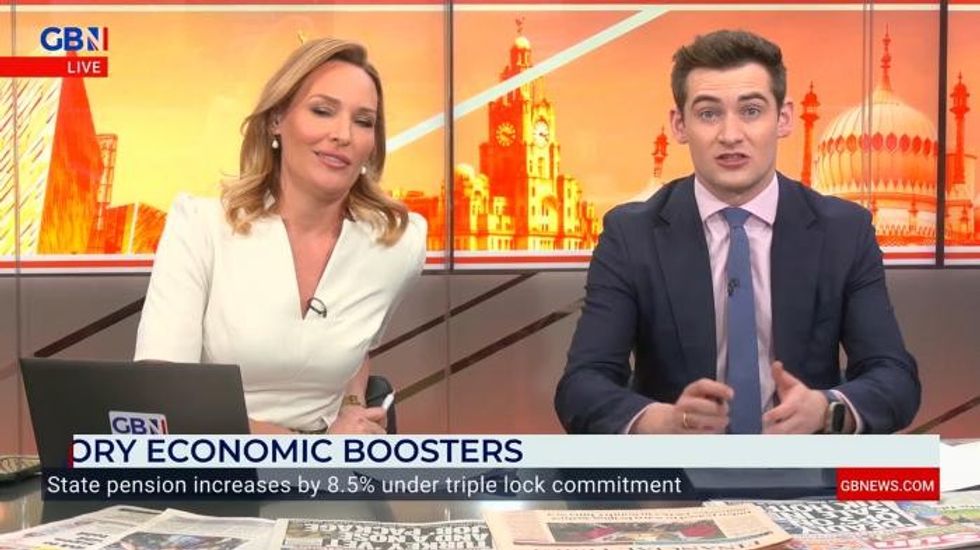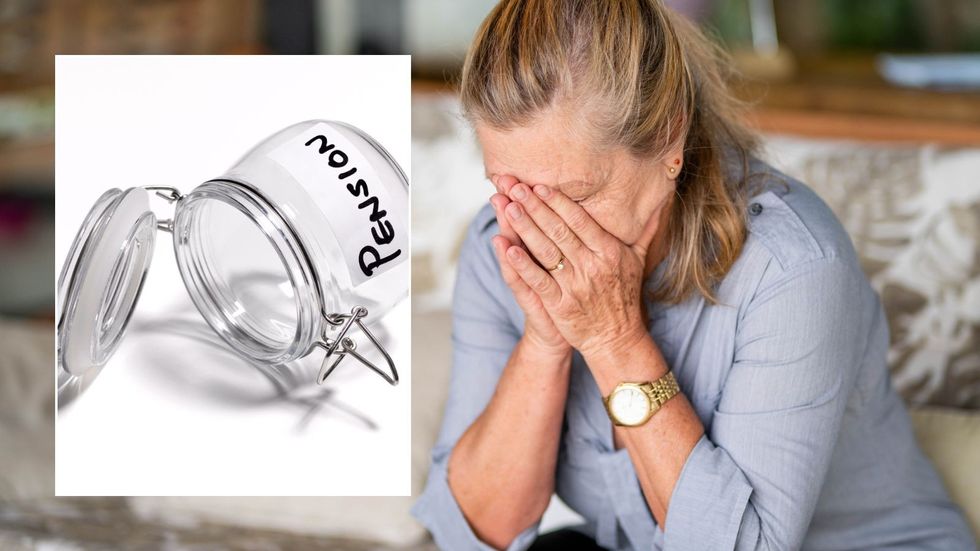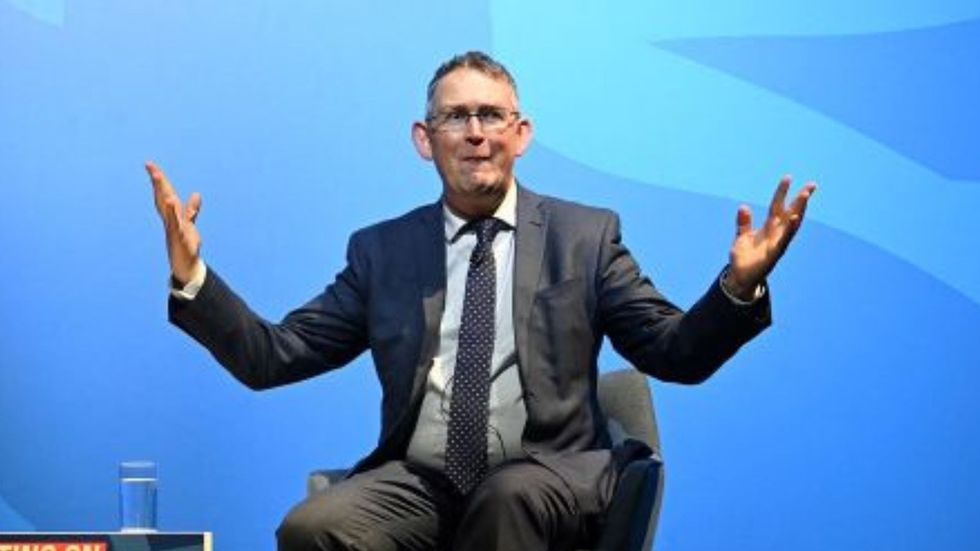'Bad news' for pension savers as Britons to have 'poorer retirement' after decision delay
A recent Government decision means “bad news for pension savers”, retirement experts have claimed.During the Pension Age Spring Conference earlier today, pensions minister Paul Maynard revealed there is no plan to rollout mandatory accreditation for pension schemes.He asserted that discussions with the Financial Conduct Authority (FCA) had suggested that voluntary registers and upskilling appeared to be the “best next step forward” for workers.On the Government’s thinking, Maynard said: “We’re not yet going down the mandatory path, I think that’s fair to say.”These comments have received backlash from pensions experts who have highlighted these reforms were brought forward as far back as 2017.Notably, analysts are warning that Britons will face “poorer retirement incomes” as a consequence of this decision.Do you have a money story you’d like to share? Get in touch by emailing money@gbnews.uk.Kate Smith, the head of Pensions at Aegon, slammed the Government’s plan to no longer pursue auto-enrollment reform.She explained: “I’m deeply disappointed that the Pensions Minister has confirmed that 2017 reforms of auto-enrolment implementation consultation will be delayed to the mid or late 2020s.“We have been expecting this consultation for over six months now, ever since the Pensions Act enabling these reforms, passed back in September 2023. “Once implemented, this will widen the scope of auto-enrolment by lowering the minimum age from 22 to 18 and removing the salary offset so pension contributions are made from the first pound, once the reforms are implemented.”Auto-enrollment has become common place in many sectors and has reversed the recent trend of declining workplace pension savings.Since its introduction in 2012, there has been a tenfold increase in total membership for defined contribution pension schemes from 2.1 million in 2011 to 21 million in 2019.Furthermore, actively contributing membership in these schemes jumped from 0.9 million active members in 2011 to 10.6 million members in 2019.According to Aegon’s head of Pensions, auto-enrollment expansion is essential to improving the retirement of millions across the UK. Smith added: “This is bad news for pension savers, particularly low earners, who are disproportionately women. “As time marches on, and with an election looming, it could be over 10 years on from the 2017 review before changes start to be implemented, with potentially millions of employees losing out on higher pension contributions and facing poorer retirement income outcomes.”LATEST DEVELOPMENTS:'Unique window of opportunity' to boost state pension will close next yearUK faces 'hidden poverty crisis’ as state pension age risesBritons risk ‘very bleak future’ as thousands empty pension pots before retirementThis morning, Maynard indicated such reform could be introduced once the voluntary register and upskilling had “worked their way through the system”.Despite this, the pensions minister noted that he did not think the Government has reached that point yet.He shared: “Equally, we are seeing more professional trustees emerging. We need to keep an eye on it; there are positives and there are negatives. “I would rather do stuff through goodwill on a voluntary basis first and foremost; we don’t need more regulation.”

A recent Government decision means “bad news for pension savers”, retirement experts have claimed.
During the Pension Age Spring Conference earlier today, pensions minister Paul Maynard revealed there is no plan to rollout mandatory accreditation for pension schemes.
He asserted that discussions with the Financial Conduct Authority (FCA) had suggested that voluntary registers and upskilling appeared to be the “best next step forward” for workers.
On the Government’s thinking, Maynard said: “We’re not yet going down the mandatory path, I think that’s fair to say.”
These comments have received backlash from pensions experts who have highlighted these reforms were brought forward as far back as 2017.
Notably, analysts are warning that Britons will face “poorer retirement incomes” as a consequence of this decision.
Do you have a money story you’d like to share? Get in touch by emailing money@gbnews.uk.

Kate Smith, the head of Pensions at Aegon, slammed the Government’s plan to no longer pursue auto-enrollment reform.
She explained: “I’m deeply disappointed that the Pensions Minister has confirmed that 2017 reforms of auto-enrolment implementation consultation will be delayed to the mid or late 2020s.
“We have been expecting this consultation for over six months now, ever since the Pensions Act enabling these reforms, passed back in September 2023.
“Once implemented, this will widen the scope of auto-enrolment by lowering the minimum age from 22 to 18 and removing the salary offset so pension contributions are made from the first pound, once the reforms are implemented.”
Auto-enrollment has become common place in many sectors and has reversed the recent trend of declining workplace pension savings.
Since its introduction in 2012, there has been a tenfold increase in total membership for defined contribution pension schemes from 2.1 million in 2011 to 21 million in 2019.
Furthermore, actively contributing membership in these schemes jumped from 0.9 million active members in 2011 to 10.6 million members in 2019.
According to Aegon’s head of Pensions, auto-enrollment expansion is essential to improving the retirement of millions across the UK.
Smith added: “This is bad news for pension savers, particularly low earners, who are disproportionately women.
“As time marches on, and with an election looming, it could be over 10 years on from the 2017 review before changes start to be implemented, with potentially millions of employees losing out on higher pension contributions and facing poorer retirement income outcomes.”
LATEST DEVELOPMENTS:
- 'Unique window of opportunity' to boost state pension will close next year
- UK faces 'hidden poverty crisis’ as state pension age rises
- Britons risk ‘very bleak future’ as thousands empty pension pots before retirement

This morning, Maynard indicated such reform could be introduced once the voluntary register and upskilling had “worked their way through the system”.
Despite this, the pensions minister noted that he did not think the Government has reached that point yet.
He shared: “Equally, we are seeing more professional trustees emerging. We need to keep an eye on it; there are positives and there are negatives.
“I would rather do stuff through goodwill on a voluntary basis first and foremost; we don’t need more regulation.”







































